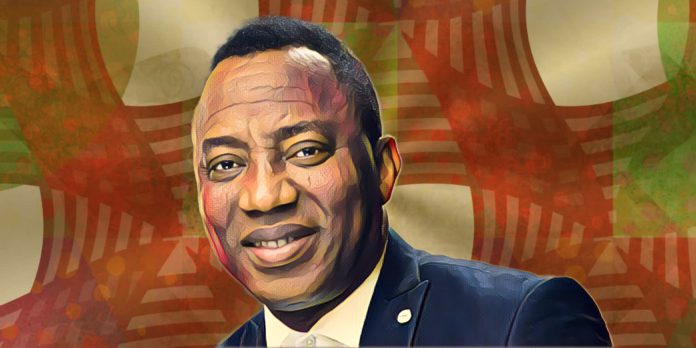KEY POINTS
- Police say Sowore’s arrest followed due process.
- The activist claims his hand was broken in custody.
- The Nigerian police dismissed the claims of torture made by Sowore.
Nigerian police have pushed back against claims by activist and Sahara Reporters publisher Omoyele Sowore that he was assaulted while in custody, saying his arrest stemmed from allegations of forgery, cyberstalking, and other criminal offenses—not political retaliation.
Police said Sowore, detained in Abuja after honoring an invitation from the Inspector-General of Police’s monitoring unit on Wednesday, was released on bail within the 48-hour constitutional window.
His stay in custody, they stressed, was under a valid remand order issued by a competent court.
Sowore alleges assault and broken hand
In a Facebook livestream during his detention, Sowore alleged that officers broke his hand and denied him proper medical treatment.
“They brought a nurse instead of a doctor, then brought the media,” he said, calling the experience “illegal and unjust.”
Police dispute injury narrative
The Force, in a statement signed by spokesperson Olumuyiwa Adejobi, called the claims “deliberate disinformation” designed to damage the reputation of the police and its leadership.
The statement said Sowore’s bandage predated his arrest and was among his personal belongings when he arrived.
Adejobi added that the Inspector-General ordered an internal inquiry into how the activist was able to wear the bandage in custody, particularly since Sowore twice declined medical examinations by independent police medical teams on August 7 and 8.
Police defend legal process
Authorities said the arrest was based on “credible, corroborated allegations” and carried out in line with the law.
They denied any torture, citing the Force’s zero-tolerance policy and compliance with the Anti-Torture Act of 2017.
“The arrest complied with due process, and his rights were respected,” the statement read. “He is fully aware of the allegations and will appear in court to answer them.”
The Force urged the public and media to avoid sensationalism, warning that narratives driven by “personal vendettas” against police officials undermine investigations and public trust.



